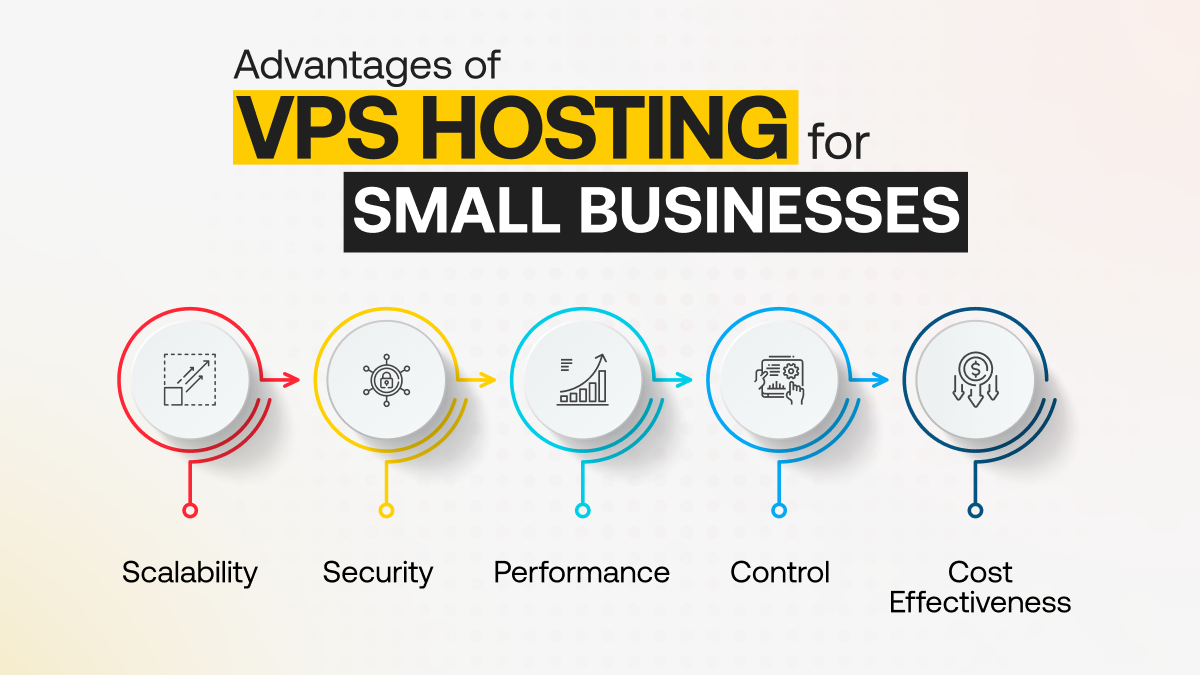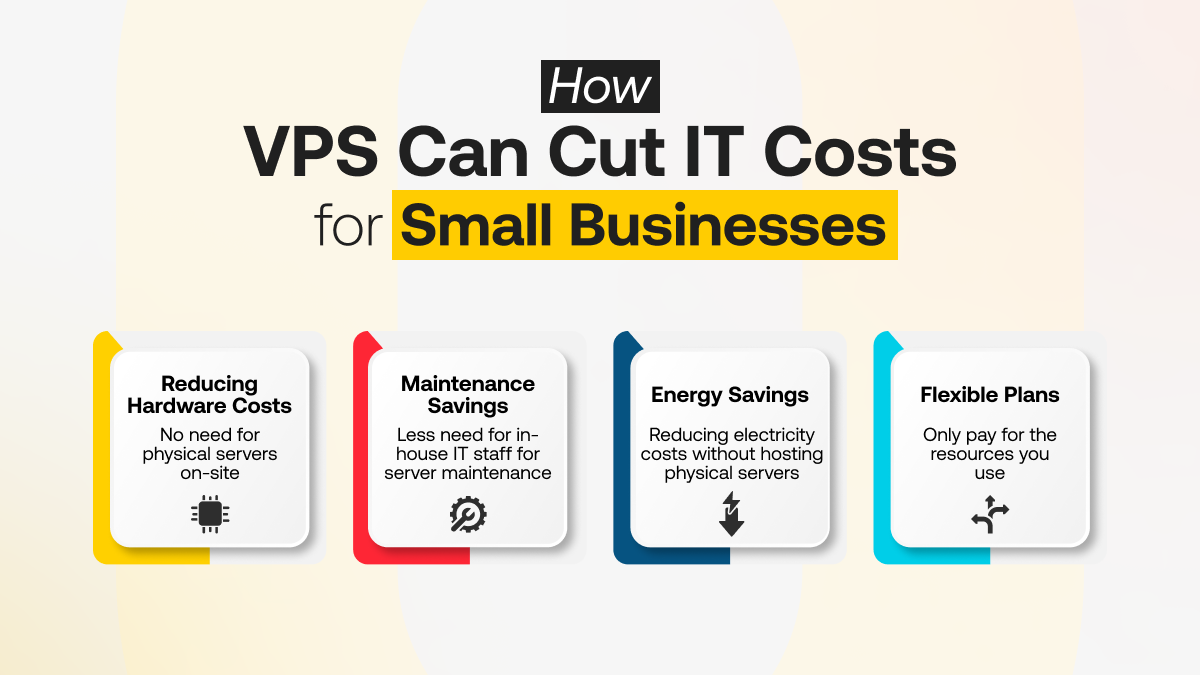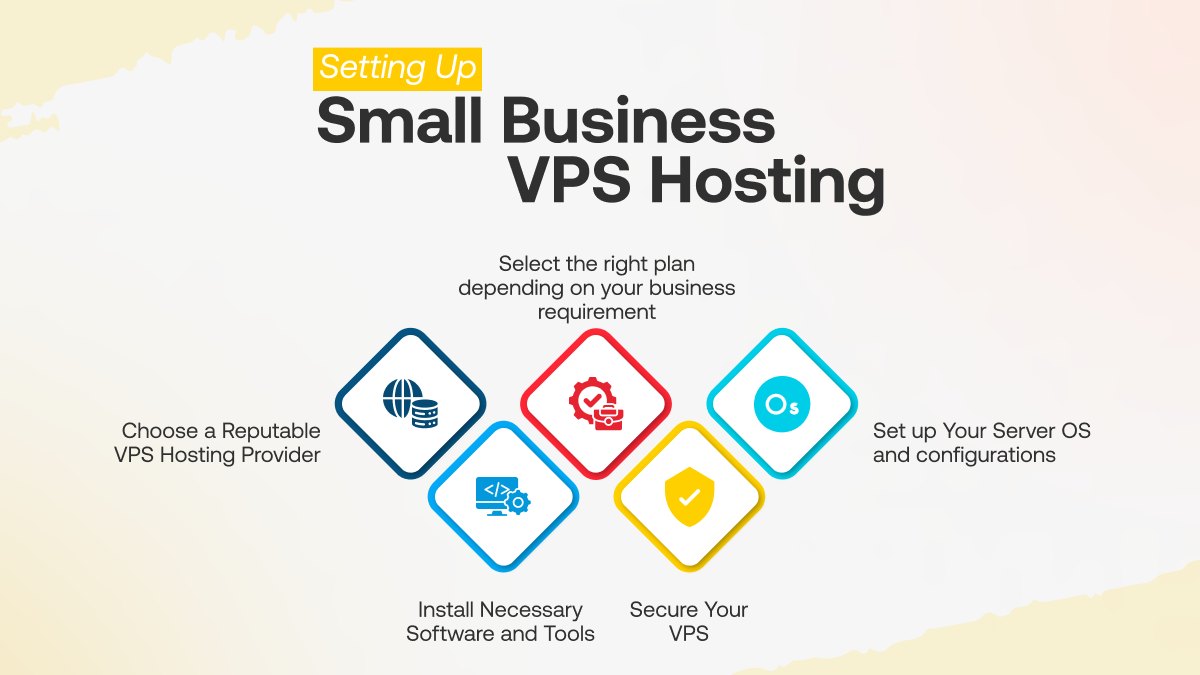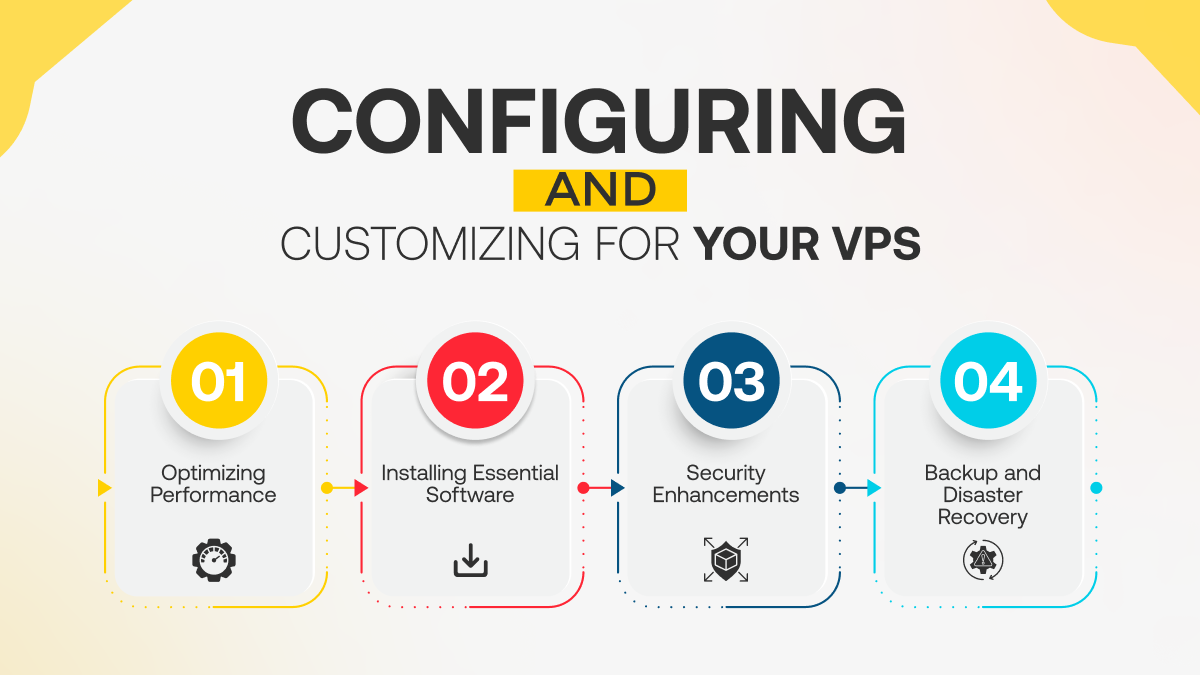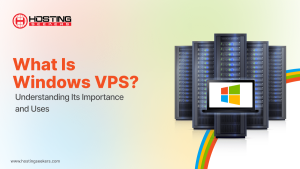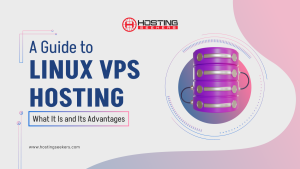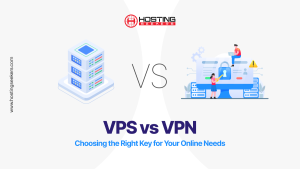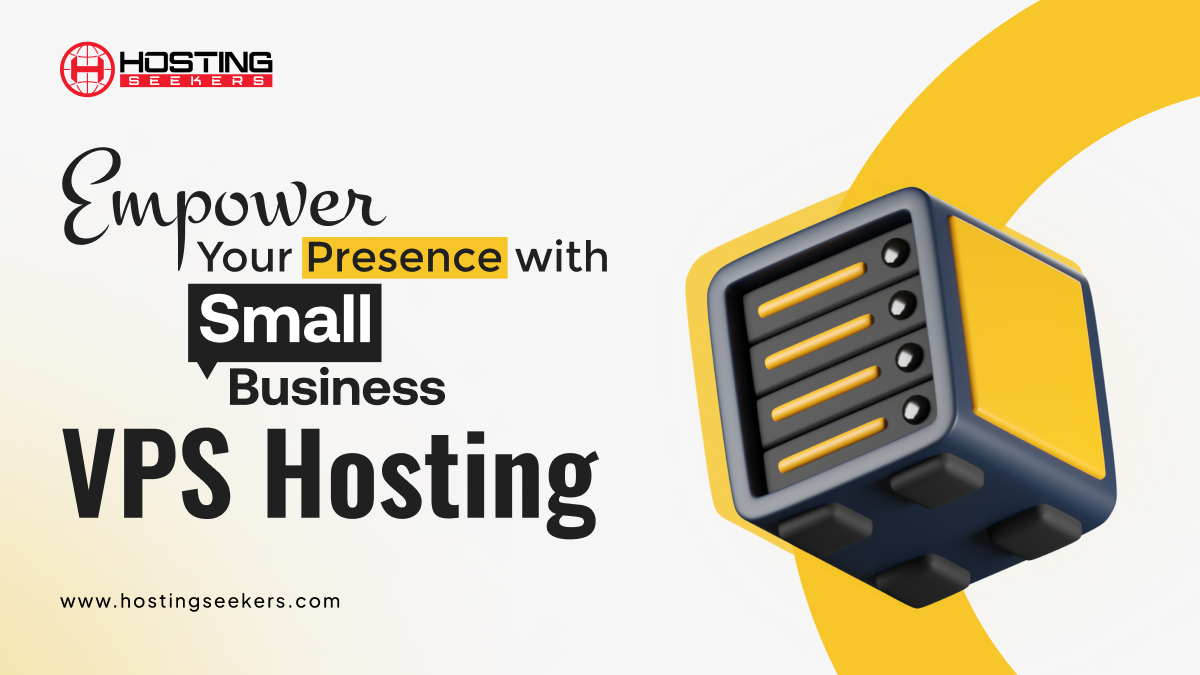
VPS Hosting for Small Businesses – Cost-Effective IT Infrastructure
VPS Published on Date: September 20th 2023Table of Content
Having the appropriate web hosting solutions can make or break a small business’s success. Small Business VPS hosting is a hosting solution specially designed to cater to the unique requirements of small businesses. It bridges the gap between traditional shared hosting and dedicated server hosting, providing a perfect balance of price and performance.
If you are a startup company or running a small business, this blog will help you understand how Virtual Private Server hosting can save you money and time by enhancing your hosting capabilities and establishing a strong online presence in this highly competitive digital world.
Understanding Small Business VPS Hosting
Small business VPS hosting is a solution where virtualization technology divides a physical server into multiple virtual servers. Each virtual server operates independently, with its dedicated resources, including RAM, CPU, and storage. This means that small business gets a part of a larger server, which offers the benefits of a dedicated server hosting without the associated costs.
Virtualization technology plays a critical role in small business hosting. It enables a single physical server to run multiple virtual instances, each with its operating system and dedicated resources.
These virtual servers are isolated from one another, allowing the actions of one user not to impact others. The web hosting providers manage this virtualization layer, making it a hassle-free solution for small businesses.
Advantages of VPS Hosting for Small Businesses
1. Scalability
One of the out-of-the-box features of small business virtual server is its scalability. Web hosting for small businesses often experiences fluctuation in website traffic. At peak times or crucial events like product launches or holiday sales, you may also need more resources to handle increased traffic.
Virtual Private server hosting enables you to scale up resources on-demand, ensuring your website remains accessible and responsive to visitors.
2. Security
Security is the utmost for small business server hosting. Looking for the best website builder for small businesses with high security can benefit from dedicated resources, which means your server environment is isolated from others.
Also, unlike shared hosting services, where a security breach on one site can impact others, small-business VPS hosting offers higher security. You can implement security configurations and measures to protect your data and client information.
3. Performance
Website performance directly hampers user experience and search engine ranking. Slow-loading websites can lead to high bounce rates and loss of conversion rates. VPS for small business ensures better server performance, faster page load times, and a more responsive website. In addition, with improved uptime, your website is available to customers 24/7, enhancing trustworthiness and reliability.
4. Control
Controlling the server is vital, especially for small businesses. Small business VPS hosting offers completed root access, enabling you the autonomy to install and configure software, adjust server settings and customize security measures. This level of control empowers you to tailor your hosting environment to your specific business requirements.
5. Cost-Effectiveness
Budgets for small firms are frequently constrained. Dedicated servers may be quite costly despite being powerful. A more affordable option is Virtual private server hosting, which gives a dedicated environment with lots of resources for a small additional fee. Small firms may devote resources to other crucial areas of their operations because of this cost-effectiveness.
How VPS Can Cut IT Costs for Small Businesses?
1. Reducing Hardware Costs: No Need for Physical Servers On-Site
Traditional hosting solutions, including dedicated servers, need small businesses to invest in and maintain physical hardware. This includes significant upfront costs, not to mention the space and resources needed to house servers on site. With VPS hosting, these expenses are eliminated. Small businesses can rely on the hosting provider’s infrastructure, saving both capital and space.
2. Maintenance Savings: Less Need for In-House IT Staff for Server Maintenance
Maintaining a server can be a difficult d time-consuming task. Small businesses often require dedicated IT staff to handle server maintenance, troubleshooting and updates. Also, virtual private server hosting providers typically offer managed services, which means they handle server maintenance and technical issues. This reduces the depending on in-house IT staff, saving both labor cost and time.
3. Energy Savings: Reducing Electricity Costs Without Hosting Physical Servers
Physical servers consume a considerable amount of electricity. Small businesses striving to reduce their carbon footprint can benefit from VPS hosting’s energy efficiency. You significantly reduce energy consumption by eliminating the need for on-site servers, leading to cost savings and environmental benefits.
4. Flexible Plans: Only Pay for the Resources You Use
Small business VPS hosting plans are often structured to accommodate small business budgets. Unlike dedicated servers, where you pay for fixed resources regardless of usage, VPS plans enable you to pay only for the resources you require and use. This flexibility ensures that you are not overpaying for unused capacity, making it a cost-effective solution.
Setting Up Small Business VPS Hosting
Step-by-Step Guide
- Choose a Reputable VPS Hosting Provider: Start by researching and choosing a reputable VPS hosting provider. Look for providers with a track record of stronger customer support, reliability, and a variety of hosting plans.
- Select the Right Plan Depending on Your Business Requirement: Always consider your current and future resource requirements when choosing a hosting plan. Assess factors like RAM, Storage, CPU and bandwidth to ensure they align with your website’s demands.
- Set up Your Server OS and configurations: Once you have selected a plan, you may need to set up your VPS configurations and operating systems. Most small business website hosting providers offer a range of operating systems to select from, including Linux and Windows. Select the one that best suits your requirements and follow the provider’s instructions for setup.
- Install Necessary Software and Tools: Depending on your business’s need, you may be required to install specific software and tools on your VPS. This could include eCommerce platforms, content management systems (CMS), etc. Follow the best practices for security and performance optimization during the installation process.
- Secure Your VPS: Security is pivotal in this digital world. Always implement robust security measures including firewalls, intrusion detection systems and regular software updates to safeguard your data and VPS.
Follow this Guide for In-depth Information: 9 Factors to Consider While Choosing a VPS Hosting Plan
Configuring and Customizing for Your Business
After the initial set up, take time to customize and configure your VPS to align with your business’s unique requirements. This may involve:
- Optimizing Performance: Fine-tune server settings and resources to enable optimal performance. Consider load balancing for high traffic periods.
- Installing Essential Software: Install business-critical software, including web servers, databases and applications to support your online operations.
- Security Enhancements: Strengthen security measures by implementing SSL and configuring firewalls. Certificates, and regularly monitoring for vulnerabilities.
- Backup and Disaster Recovery: Set up automated backup systems to safeguard your data and ensure you can quickly recover in case of unexpected incidents.
Conclusion
The importance of a strong online presence cannot be overstated. Small business owners should view VPS hosting as a strategic investment in their future success. By embracing this cost-effective IT infrastructure, they can enhance their online presence, build customer trust, and stay competitive in today’s fast-paced marketplace.
Virtual server for small business can pave the way for a robust online presence. It would drives growth and success in an increasingly digital world. If you are looking for the best VPS providers for your small business, HostingSeekers is the right place, as we have listed the top VPS hosting providers that give your desired outcomes.
Frequently Asked Questions
Q1. Can I upgrade my VPS hosting plan as my small business grows?
Ans. Yes, most VPS hosting providers offer scalable plans that allow you to easily upgrade your resources as your small business expands. This scalability ensures that your hosting can grow with your needs.
Q2. Is VPS hosting secure for small businesses?
Ans. VPS hosting is generally more secure than shared hosting because each virtual server is isolated from others. Small businesses have the flexibility to implement custom security measures and configurations to protect their data and ensure a secure online environment.
Q3. Is VPS hosting suitable for hosting e-commerce websites for small businesses?
Ans. Yes, VPS hosting is an excellent choice for hosting e-commerce websites. It provides the performance, security, and reliability needed for online transactions. Also, it can handle the traffic spikes associated with ecommerce businesses.
Q4. How can VPS hosting help small businesses reduce IT costs?
Ans. Virtual Private Server hosting can cut IT costs by:
- Eliminating the need to invest in and maintain physical servers.
- Reducing the reliance on in-house IT staff for server maintenance.
- Lowering electricity costs as there are no physical servers to power.
- Offering flexible billing plans where you pay only for the resources you use.
